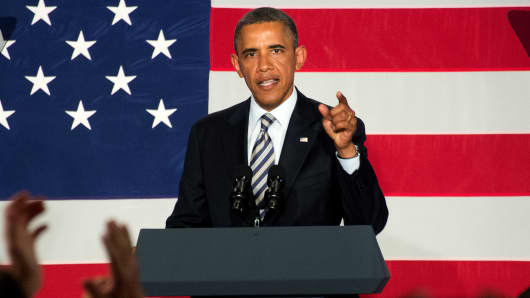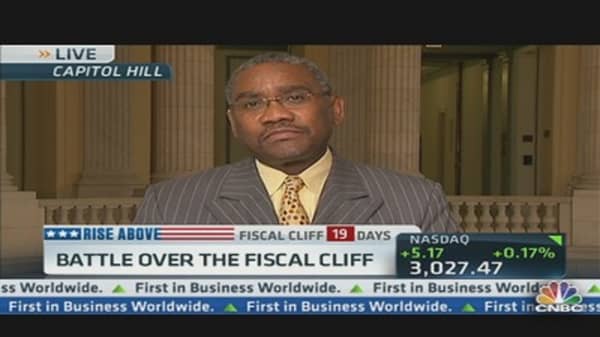A strong majority of Americans wants the two political parties to compromise to avoid the "fiscal cliff," and most back President Barack Obama's prescription for doing so, according to a new NBC News/Wall Street Journal poll.
By 65 percent to 28 percent, respondents to the survey preferred that political leaders compromise to reach a deal—even if that means tax increases and cuts in Social Security and Medicare—rather than stick to their positions and allow across the board tax hikes and spending cuts on Jan. 1. The telephone survey of 1,000 adults, conducted Dec. 6-9, carries a margin for error of 3.1 percentage points.
(Read More:
'Cliff' Talks at Standstill: 'It's Getting Worse, Not Better'
.)
But on the specific measures that might be part of a compromise, public opinion favors Obama's views. Fully 68 percent said Obama "has a mandate" from the November election to cut taxes on families earning less than $250,000 per year; 65 percent said he has a mandate for "increasing taxes on the wealthy and reducing federal spending."
Some 59 percent said Obama has a mandate to eliminate the Bush tax cuts on incomes above $250,000. And an overwhelming 76 percent said that higher tax rates on incomes that high would be an "acceptable" element of a compromise to avoid the fiscal cliff.
(Read More: It Could Get Hairy Before 'Cliff' Deal: Greenspan.)
In part, those assessments reflect the traditional afterglow that presidents enjoy after winning re-election when partisan attacks taper off. The poll shows Obama's job approval rating, which never stood higher than 50 percent earlier this year, now at 53 percent.





